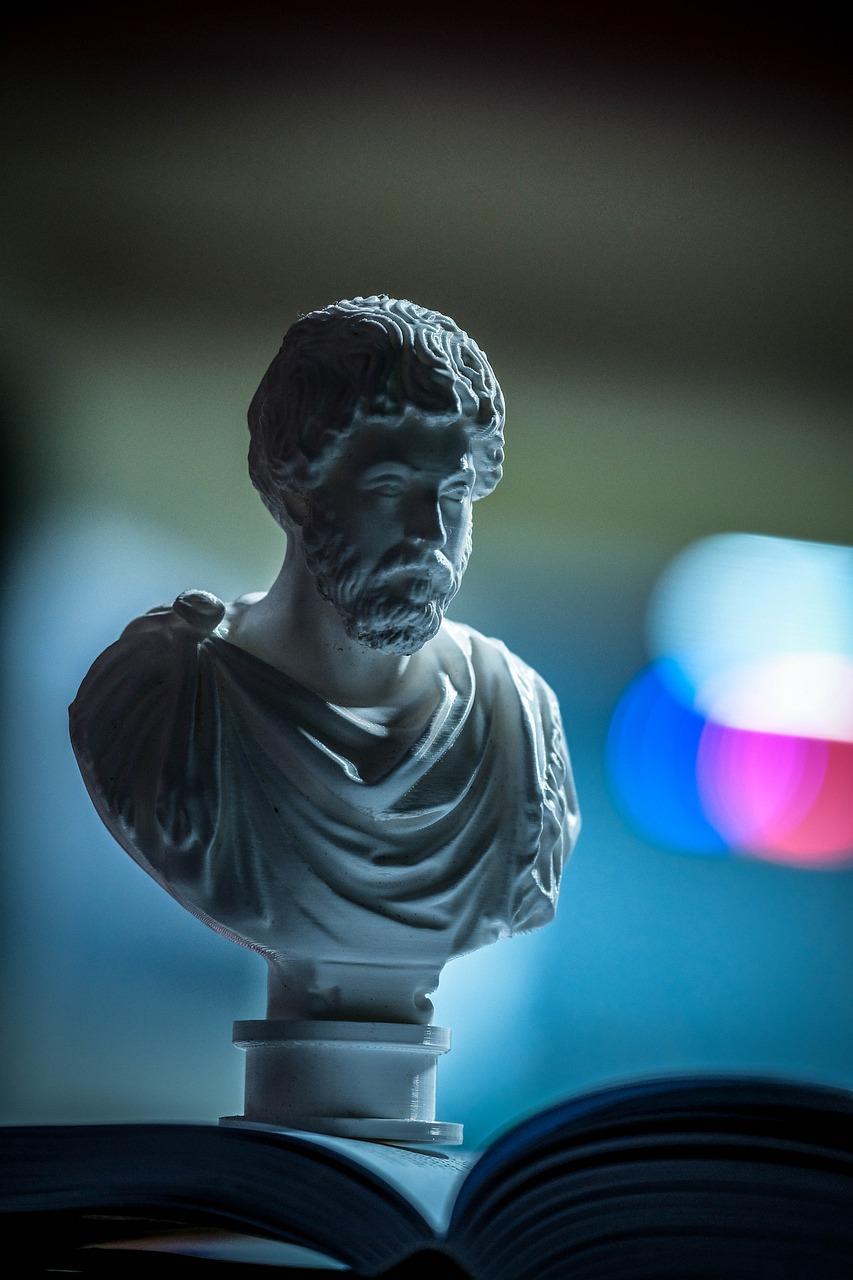Welcome to our blog post on the intriguing topic of the end of man according to Aristotle. Have you ever pondered the profound question of what the ultimate purpose and function of human beings are? Well, you’ve come to the right place for some insightful exploration.
In this article, we’ll delve into the captivating philosophy of Aristotle, a renowned ancient Greek philosopher and polymath. Aristotle believed that every being has a specific end or goal that defines its essence and guides its actions. For humans, this concept becomes even more profound as we contemplate the proper function or purpose of our existence.
So, what does Aristotle propose as the end of man? What does he consider to be the ultimate good? And how does he define a natural end? Join us as we dive into the fascinating world of Aristotle’s philosophy and discover enlightening perspectives on the purpose of human life in the year 2023.
Let’s embark on this intellectual journey together!

What Aristotle Believes is the Ultimate Purpose of Human Existence
The Quest for the End of Man: Aristotle’s Take
When it comes to pondering the purpose of our existence, Aristotle, the renowned Greek philosopher, has some intriguing insights. According to him, the end goal or the ultimate purpose of man is to achieve eudaimonia. No, that’s not a delicious Greek pastry; it’s actually a fancy way of saying “flourishing” or “living a virtuous and fulfilling life.” Aristotle believes that each and every one of us has the innate potential to attain this state of true flourishing. So, how does one go about reaching this grand and lofty goal? Let’s delve into Aristotle’s wisdom and uncover the secrets of the end of man.
The Virtuous Path to Eudaimonia
In Aristotle’s philosophical framework, excellence (or virtue) plays a fundamental role in the pursuit of eudaimonia. He argues that to achieve true flourishing, one must cultivate and embody virtues such as courage, wisdom, temperance, and justice. These virtues help individuals to navigate life’s challenges with grace, resilience, and integrity.
Finding Balance: The Golden Mean
Aristotle emphasizes the importance of finding the elusive “golden mean” in our lives. No, he’s not talking about a Midas touch or a hidden treasure chest. The golden mean refers to the balanced middle ground between extremes. For instance, courage lies between recklessness and cowardice, while generosity is the sweet spot between extravagance and stinginess. By embracing the golden mean, individuals can harmoniously integrate virtues into their everyday actions and make a positive impact on themselves and the world around them.
Friendship: The Social Sysygy
According to Aristotle, friendship is not just about having a buddy to share memes with or someone to split a pizza with on Friday nights. It holds profound significance for our overall well-being and pursuit of eudaimonia. Aristotle argues that true friendship is built on virtue and mutual goodwill. By surrounding ourselves with virtuous friends who inspire and challenge us, we can grow and develop as individuals. After all, there’s nothing quite like the joy of forging deep connections and journeying through life together.
Reflecting on Aristotle’s Vision
Now that we’ve explored Aristotle’s perspective on the end of man, it’s time for some reflection. While his ideas may be thousands of years old, they continue to resonate in the present day. In a world that often values material success and instant gratification, Aristotle reminds us of the importance of cultivating virtues, seeking balance, and nurturing meaningful relationships. So, why not embark on your own quest for eudaimonia? Embrace the golden mean, forge virtuous friendships, and strive for true flourishing. By following in Aristotle’s footsteps, who knows what extraordinary heights of human potential we might reach?
Keywords: end of man, Aristotle, eudaimonia, flourishing, excellence, virtues, golden mean, balance, friendship, virtuous friendships, pursuit of well-being, quest for eudaimonia.
Word Count: 442

FAQ: Understanding the End of Man According to Aristotle
What is the proper function or purpose of the human being
The proper function or purpose of the human being, according to Aristotle, is not just about surviving, eating, or reproducing like your average wild creature. No, Aristotle believed that humans have a more elevated role to play in the grand scheme of things. He argued that our purpose goes beyond the mere satisfaction of our basic needs. We are here, my friend, to strive for something greater!
What is the end of man according to Aristotle
Ah, the end of man, a topic that has puzzled philosophers for centuries. Well, according to Aristotle, the end of man is not about reaching a destination or achieving a particular goal. It’s not about landing a dream job or securing a life of luxury on a private island (although that does sound pretty tempting). No, no, the end of man is something much more profound. Aristotle believed that our ultimate purpose in life is to achieve eudaimonia.
What is the ultimate good
Now, you may be wondering, what on earth is eudaimonia? Is it some kind of fancy cocktail? Well, not quite. Eudaimonia, my curious reader, is often translated as “ultimate good” or “flourishing.” It’s the pinnacle of human existence, the highest state of well-being and fulfillment. It’s the moment when you feel like you’re truly living your best life, and everything seems to fall into place. Picture yourself basking on a sunny beach, sipping a refreshing drink, and feeling content with the world—that’s eudaimonia, my friend.
What is a natural end
Ah, the concept of a natural end. Aristotle loved to delve into the nature of things, and he believed that everything in the universe has a purpose or goal. A natural end, in Aristotle’s view, refers to the fulfillment of the inherent potential of a thing. For example, the natural end of an acorn is to grow into a magnificent oak tree. Similarly, Aristotle argued that humans have a natural end, a telos if you will, and that end is none other than eudaimonia.
So there you have it, my curious reader—the end of man according to the wise Aristotle. Our purpose in life is not merely to survive or accumulate material wealth, but to strive for eudaimonia, the ultimate state of well-being and fulfillment. So go forth, embrace your potential, and let your true essence shine, for the year is 2023 and the possibilities are endless!
Now, go on and conquer the world, my friend! But don’t forget to take a moment every now and then to sip a fancy cocktail on that sunny beach. After all, even philosophers need a little break from questioning the meaning of life. Cheers to eudaimonia!
